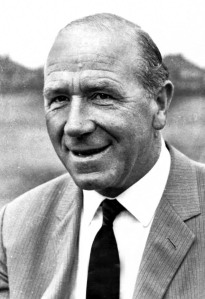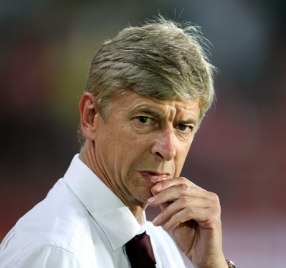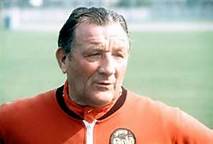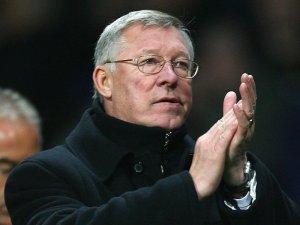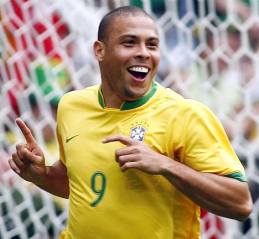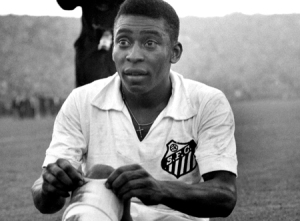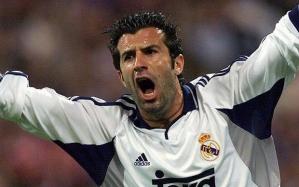Here’s my greatest eleven of all-time which has been derived from my recent positional all-time top five. But what would the greatest team ever be without a manager? So scroll down and you’ll find my top five managers of all-time.
Played in a standard 4 – 4 – 2 formation.
Goalkeeper: Lev Yashin – A revolutionary goalkeeper who is widely known as the greatest goalkeeper ever.
Left back: Roberto Carlos – The greatest left-back of his generation, could attack and defend equally well and has a trophy cabinet the size of a shed.
Centre back: Franz Beckenbauer – The most elegant and decorated of centre backs
Centre back: Bobby Moore – When Pele says he’s the best player he’s played against, you know he’s special
Right back: Cafu – The most bombarding right-back of all-time
Left midfield: Ryan Giggs – The most decorated Premiership player of all-time
Defensive midfield: Claude Makelele – He has his own role and position named after him, Zidane once called him the Galacticos engine room.
Attacking midfield: Zinedine Zidane – One of the greatest players ever, won games and beat teams almost individually with elegance and flair.
Right midfield: Garrincha – The greatest dribbler of all time, despite his birth defects.
Striker: Pele – The greatest footballer of all-time and probably the most successful and best goalscorer ever.
Striker: Thierry Henry – Just because I can.
Now that’s done, here’s my top five greatest managers of all-time.
First up is a manager who was so good he didn’t build one or two great teams, he managed to build three. After 24 years at Manchester United, Matt Busby had witnessed both extreme highs of football management, and an extreme low.
Busby’s first team won an FA Cup and a league title, as well as coming second four more times in the league. Busby then replaced his ageing team with players whose youthfulness gained them the media nickname of ‘The Busby Babes’. The players which included England legend Bobby Charlton were so successful that Tommy Taylor and Harry Gregg were Man United’s only major signings in four years. ‘The Busby Babes’ won the league in 1956 and 1957 and were runners-up in the 1957 FA Cup final to Aston Villa.
Busby’s side were showing great potential and were chasing silverware on all front before the 1958 Munich air disaster. Seven players were among the 23 people killed at the scene while Duncan Edwards died several weeks later of his injuries and two more players weren’t able to play football again due to injuries sustained. Busby himself received serious injuries but left hospital nine weeks after the incident.
Ten years later, Busby had built another great team around the Munich air disaster survivors such as Bobby Charlton, Harry Gregg and Bill Foulkes. Accompanied by fellow Man United legends George Best and Denis Law, the team went on to win the 1963 FA Cup, 1965 and 1967 league titles and the 1968 European Cup.
Overall, Busby won five league titles, five Charity Shields, two FA Cups and a European Cup.
Next up is the manager of my own team, I may be called bias for this but what Arsene Wenger managed to transform Arsenal into during their glory days was phenomenal.
Arriving at Arsenal in 1996, he was able to change Arsenal from ‘boring, boring Arsenal’ into, during their prime, the team that played the best and most beautiful football in the country. Wenger has also become renowned for his ability to unearth footballing gems such as Thierry Henry, Patrick Vieira and Cesc Fabregas and turn them into footballing superstars. He was also a key figure in overseeing the construction and design of the club’s Emirates Stadium which is seen as one of the best football stadiums in the country.
Wenger turned Arsenal from Premiership obscurity into one of the top teams in the country but before that he had a good record with previous teams Nancy-Lorraine, Monaco and Nagoya Grampus Eight. To date he has won one Ligue 1 title, one Coupe de France, one Japanese league title, three Premiership titles, four FA cups and four Charity Shields.
Wenger’s greatest achievement was building an Arsenal team which went an entire league season unbeaten, ‘The Invincibles’ as they were dubbed went on to achieve a 49 league game unbeaten streak with the likes of Thierry Henry, Dennis Bergkamp and Patrick Vieira being just a few of what is seen as one of the greatest league footballing teams of all-time.
Third up is arguably Liverpool’s greatest manager of all-time, although he is undoubtedly the most successful. Bob Paisley took over from previous Liverpool manager Bill Shankly after Shankly unexpectedly announced his retirement after winning the 1974 FA Cup. The rest, as they say, is history as the period that Paisley was in charge was the most successful period in Liverpool’s history.
In nine years, Paisley collected 19 trophies in a trophy-laden spell which included six league titles, three League Cups and five Charity Shields. His greatest achievement is leading Liverpool to three European Cups, so far he is the only manager to win three European Cups. He also went on to win one European Super Cup.
Unfortunately for Paisley, the FA Cup was always a trophy which eluded him and is the only major trophy the great manager never won, however he was voted manager of the year six times in his nine year spell, a spell which continued Liverpool’s dominance of the time after the departing Shankly.
Penultimately is one of football’s greatest pioneers. Rinus Michels is the man who gave birth to idea idea of ‘Total Football’ which shows his team’s style of play is among the most aesthetically pleasing of all-time.
His philosphy of ‘total football’ is a fluid style of play which involves every outfield player of a team being comfortable in any outfield position on the pitch, therefore being able to take over any role.
Michels’ club managerial career included spells at Ajax, Barcelona, FC Koln and Leverkusen. He won four Dutch league titles, a Dutch Cup, a Spanish league title, a Spanish Cup and a European Cup and his success didn’t stop there. He employed his ‘total football’ philosophy further for the Dutch national team, leading them to World Cup glory in 1974, and 12 years later he returned to the Dutch national team, employing his philosophy again successfully as they won Euro ’88.
He was named manager of the century in 1999 by FIFA.
Last, but certainly not least, is a manager many consider as the greatest of all-time, and they wouldn’t be wrong in thinking so. Sir Alex Ferguson has taken over Matt Busby as the longest-serving and greatest manager in Manchester United’s history.
Before he went to Man United however, Ferguson was responsible for breaking Scotland’s Old Firm dominance as he lead Aberdeen to three league titles, adding four Scottish Cups, a Scottish League Cup, as well as bringing Aberdeen European glory by beating Real Madrid in the final of the UEFA Cup Winners’ Cup.
Ferguson joined Manchester United in 1986, and 26 years later he is the most successful British manager in history. He has won ten Premier League titles, five FA Cups, three League Cups, eight Charity Shields, two European Cups as well as his haul for Aberdeen. His greatest managerial feat came in 1999 when his Man United team boasting youthful names such as David Beckham, Ryan Giggs, Paul Scholes and Gary Neville went on to win the treble, being capped off by a last-gasp 2 – 1 victory over Bayern Munich at the Nou Camp.
He has been named English Manager of the Year eight times and World Manager of the Year four times and I can’t look any further for the manager of my all-time eleven than the most successful manager in history.

